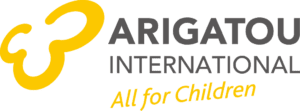
Santa’s Helpers, a group consisting of five children aged 13 to 18 years from Sombor, Serbia, has been collecting gift packs and donating them to vulnerable children during Christmas and New Year’s for several years. However, during 2020 and the start of the Covid-19 pandemic, something was different.
The children behind the project, all active in Sombor Educational Center (SEC), were motivated to initiate change in their local community in terms of child poverty. Their everyday school life and surroundings had showed them that children coming from disadvantaged backgrounds were more affected by poverty, which is why some of them do not have the school supplies needed for learning and following classes – leaving them behind in education. This is what motivated the children to make a more targeted intervention to support vulnerable children, collecting donations of school supplies and equipment to be donated as presents, in order to directly influence the solving of this problem.
Santa’s Helpers put together 40 gift packs of schools supplies and equipment. With support from adults of the Sombor Education Center, the children held consultative meetings on how they could share the gifts to disadvantaged children. In the beginning, they were faced with many difficulties due to the tightening Covid-19 restrictions. To implement their project, the children were not able to gather people together or to organize public events, having to postpone the packet distribution. However, these challenges never deterred them from their cause. As it was not possible to distribute the gift packages during the holidays, the children came up with the idea of expanding the concept of Santa’s Helpers beyond this, creatively describing the new project idea: “let’s give gifts even when it’s not a holiday!”
 With support from youth volunteers from Sombor Education Center, Santa’s Helpers plan to finally distribute the packs to vulnerable children aged between 7-16 years, hoping to arrange the event in a movie theater and in this way engage the children in an activity together.
With support from youth volunteers from Sombor Education Center, Santa’s Helpers plan to finally distribute the packs to vulnerable children aged between 7-16 years, hoping to arrange the event in a movie theater and in this way engage the children in an activity together.
The children behind Santa’s Helpers come from different backgrounds regarding gender, ethnicity, and religion, and they saw the importance of creating bridges with their project. The children see strongly education as a vehicle that can help one out of poverty and believe that everyone should have the equal opportunity participate, regardless of their background.
Aware of the fact that religious leaders are often respected and trusted members of the community, the children wanted to cooperate with local religious leaders from Orthodox and Catholic churches in helping to identify the children to support. Involving religious leaders in the process also had the goal of strengthening social cohesion between the two main denominations of Catholic and Orthodox, thus promoting peaceful co-existence in the community. The consultations with religious leaders were led by the children of Santa’s Helpers at the Sombor Education Center. They also collaborated with the local media to further the reach of the project and raise awareness on the plight of vulnerable children in acquiring education.
The children learned a lot about problem solving and rethinking action, and saw the challenges as opportunities to learn something new. The adult supporters from SEC also felt that they had learned a lot during the process:
“Guiding children to propose ways of overcoming challenges was one of the main focuses during the project, since we believe that providing space for them is the key for them to rethink and feel safe to propose valuable solutions to the challenges”
Ivana Barac, supporting adult from Sombor Education Center.
Ivana added that the project was important for children because it motivated them to become active, it gave them the opportunity to independently organize some more similar actions in the future to promote solidarity and humanity:
“We believe that the process has been a path of learning for children, but also it was the same for us adults (…) Let the children come up with an idea and implement it and you will be surprised with ending results!”
This project was one of the 5 finalists from the 37 submissions received from children’s groups world over for the Children’s Solutions Lab programme, inaugurated last year by Arigatou international; through its Interfaith initiative to End Child Poverty and Ethics Education for Children. The Lab has aimed to create meaningful spaces for children to address poverty through solutions focused on education.


